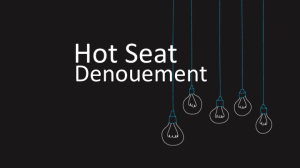Hot Seat Case #105 Denouement: 17 year old intoxicated female
Posted on: January 31, 2018, by : Haroon Shaukat MD
Michael Hrdy MD, Children’s National Medical Center
The Case:
17 year old female who was brought in by police in their custody as she was under arrest but also concerned about substance abuse and possible ETOH intoxication. Her exam was consistent with conjunctival injection and a confused sensorium but otherwise stable without any other neurologic deficits. The patient arrived at dreaded shift change and thus was seen by two providers. After a short nap, her sensorium seemed improved, however, no labs or urine were obtained at that time. The major dilemma stemmed from the legal aspects of this case and who if anyone other than the patient has the right to our findings.
Here’s How You Answered Our Questions:
Discussion:
HIPPAA compliance is a topic that is hammered into almost every physician, however, very few receive any formal training. This case was a great case to get at the root of what is truly allowed by practitioners and what is not. If you are as lucky as us, you have access to the legal department 24/7 and could always post any questions or concerns to them, as was done in this case by Dr. Hrdy.
These questions are often an ethical dilemma, however, it was nice to see physicians of all training levels were generally on the same page in terms of responses to the polls. Except for the last question. Everyone seemed to want labs or urine studies of some combination or nature with one provider mentioning a serum acetaminophen and aspirin level. The following question had an interesting mix of yes and no responses. Dr. Jeremy Root asked the group why those who responded no did the way they did, the vast majority responded that it would not change their management and that it may confuse the picture if other drugs were taken at another earlier time. Dr. Aimee Cahill cleverly stated that this is a scenario where in lab studies often do not affect management, but obtaining as much information as possible to be used in the court of law for evidence against a person committing a crime is helpful. Therefore, she advocated for at least an ethanol level as this can solidify a DUI charge.
As far as release of information comes, everyone agreed that the patient has a right and should know the results of what was found. However, it was a bit muddier as to who else should know. Dr. Aimee Cahill stated that the police can not know and if they ask, it is technically illegal search and seizure without a warrant. This was echoed by our legal department and stated that in no instance would the police need to know results on an immediate basis. Interestingly, no fellow opted to tell the mother of the patient results, yet the attending pool was nearly split. This again was echoed by legal that the parents do not have the right to know results without the patients permission and this is often a tricky task to juggle in an unruly parent who may progressively get more aggressive. However, have no fears and stand your ground!
In the grand scheme of things, this case highlights the fact that our nation is plagued with addiction and misuse as is highlighted by the national spotlight of Opiod addiction. Dr. Jennifer Chapman, being the great humanitarian she is, highlighted the fact that a major dilemma we face is that our substance abuse management is not very involved here. None of these children get social work consults or drug abuse/use counseling. We owe it to our patients to be a voice of reasoning when all else fails and as we all know, repetition is key.
Denouement:
The drug screen results were disclosed to the patient with no one else in the room and she was counseled to stop using any illegal substance (including alcohol). Legal was contacted to help decide whether the patient’s drug screens needed to be disclosed to the police given the possible relevance of the results to the criminal case involving the patient. It was decided that the police would be able to obtain a warrant for the medical record but otherwise drug test results obtained for a medical purpose were not different than other lab results and therefore were not disclosable. The patient was discharged back into police custody.
According to the minor consent laws of the District of Columbia:
“D.C. Mun. Regs. Tit. 22, § 600.7 provides that a minor of any age may consent for health services that he or she requests for the prevention, diagnosis, or treatment of substance abuse, including drug and alcohol abuse. See Confidentiality & Disclosure regarding confidentiality protection. See Financial Responsibility, Good Faith Reliance, and Obligation to treat or refer.”
“D.C. Mun. Regs. tit. 22, § 602.10 provides that when a minor is found not to be suffering from drug or substance abuse, including alcohol and nicotine, information shall not be given to the minor’s parents or legal guardian without the consent of the minor, unless they have already been informed as permitted by D.C. Mun. Regs, tit. 22, § 602.”
The information in these cases has been changed to protect patient identity and confidentiality. The images are only provided for educational purposes and members agree not to download them, share them, or otherwise use them for any other purpose.
